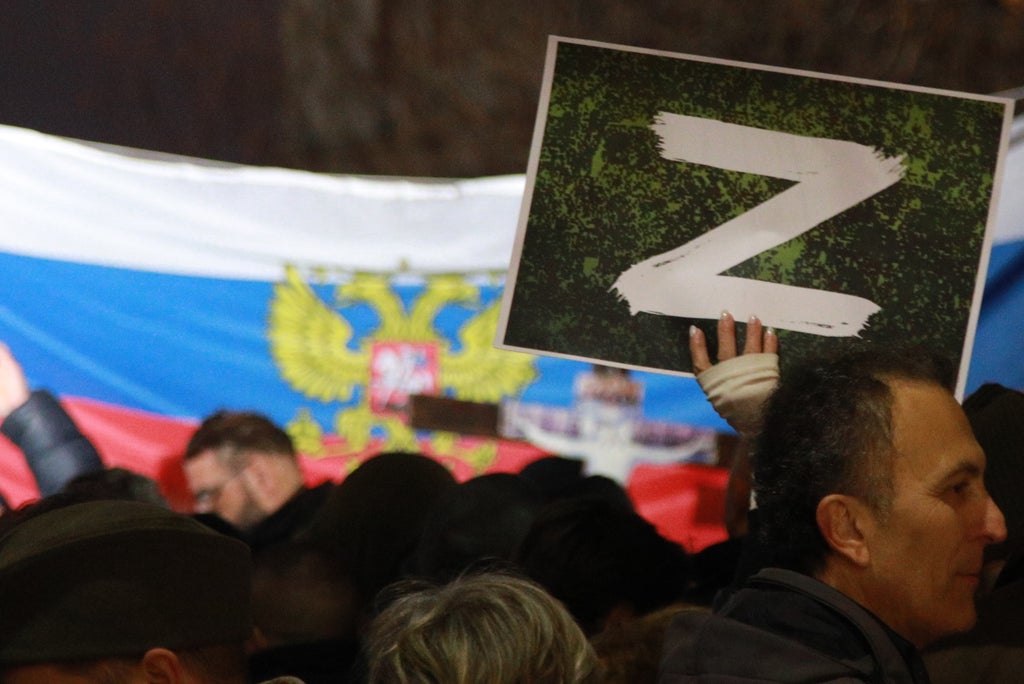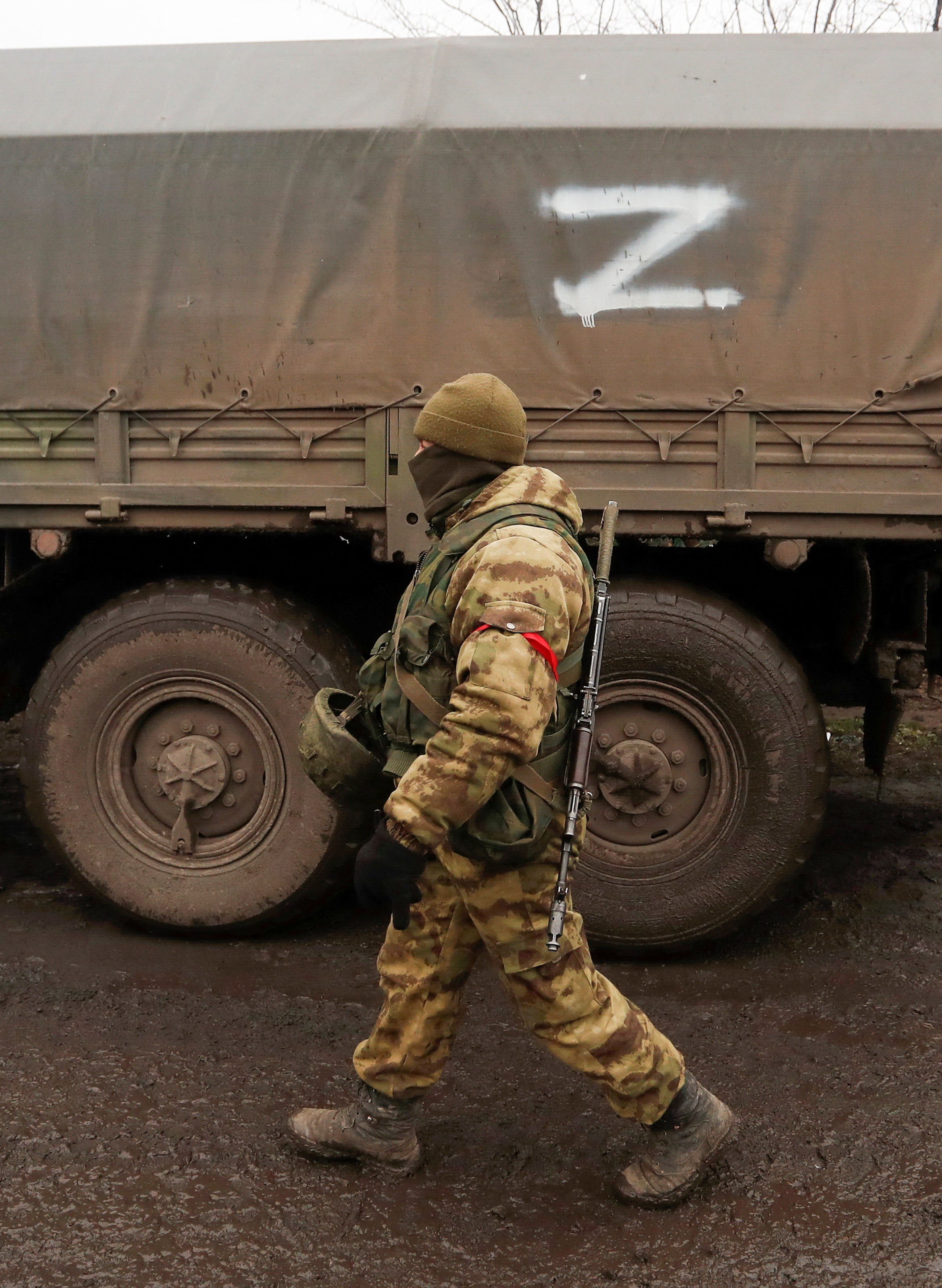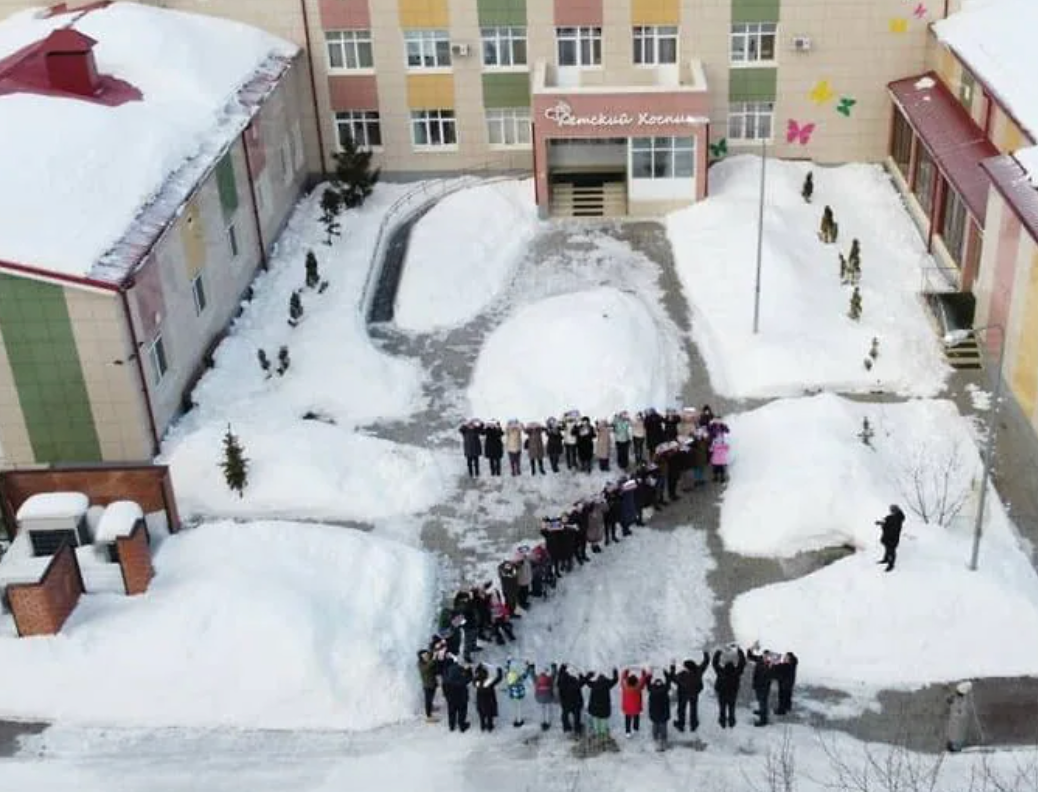
The letter “Z” has emerged as a prominent propaganda symbol in Russia’s attack on Ukraine, drawing comparisons to swastikas worn by Nazi soldiers in World War II.
At the start of Russia’s invasion, the letter – which does not exist in the Russian alphabet – was inexplicably painted on the rear of its tanks and other vehicles.
In the more than two weeks since, backers of the invasion have adopted “Z” as a logo to wear their support on their sleeves.
The origin of the letter’s connection to the war is murky, according to Kamil Galeev, a Galina Starovoitova Fellow at the Woodrow Wilson Center who has been compiling photos of the symbol on Twitter since before the invasion began.
“Some interpret ‘Z’ as ‘Za pobedy’ (for victory). Others – as ‘Zapad’ (West),” Mr Galeev explained.
“Anyway, this symbol invented just a few days ago became a symbol of new Russian ideology and national identity.”
Experts initially speculated that the marking indicated where a military unit was headed before deployment as a means to distinguish it and lessen the risk of friendly fire.
“It’s vital that any attacking force can be distinguished, particularly from the air where Russian forces will have complete control,” a source in the Ukrainian capital of Kyiv told The Sun.
“The Ukrainians have very similar tanks and vehicles and will want to reduce the risk of friendly fire.”
Michael Clarke, former director of the defence think tank Royal United Services Institute (RUSI), told Sky News that the symbols are likely to be connected to the geographic location of where the units would be deployed for combat.
"Often these symbols will be location-based – they will be communicating where a unit is heading. If they were only to mark the vehicles as being Russian, you could just use one symbol," Mr Clarke said.

But now that the invasion is well underway, the letter “Z” has taken on new meaning, according to Mr Galeev.
“To put it simply, it’s going full fascist,” he wrote in a Twitter thread on Sunday.
“Authorities launched a propaganda campaign to gain popular support for their invasion of Ukraine and they’re getting lots of it.”
The thread included several photos of civilians and cars with the marking.
“Putin took a decision to start this war. But he got a wide support of the Russian people,” he wrote. “Nobody’s forcing them to participate in these shows of support, they could totally skip it. But they cheer. They cheer, because they feel good, they feel proud. Russia became great again.”
Merchandise with the letter “Z” is being sold online by Russia Today, with proceeds purportedly going to a charity which supports “children of war”. Amazon also appears to be selling similar items, according to The Times.
Russian gymnast Ivan Kuliak used the symbol to show his support for the invasion on Saturday, when he wore it as he accepted a bronze medal at the Gymnastics World Cup event in Doha on Saturday.
The stunt was made even more jarring by the fact that Kuliak was next to Ukraine’s Kovtun Illia, who took home gold.
The International Gymnastics Federation said it had opened disciplinary proceedings against Kuliak.

And in the Russian city of Kazan, children at a hospice were apparently forced to stand outside in the snow lined up in a “Z” formation to show their support.
The propaganda stunt captured on camera by a drone was reportedly organised by Vladimir Vavilov, chairman of a cancer charity who runs the hospice.
Mr Vavilov said 60 participants – including patients and staff – held one hand in a fist and leaflets with the flags of Russia, the Donetsk People’s Republic (DPR), Luhansk People’s Republic (LPR) and Russian republic Tatarstan in the other.

Several politicians have also donned clothing and badges with the insignia, including Mikhail Delyagin and Maria Butina.
Ms Butina, who was convicted in the US of acting as a foreign agent in 2018, posted a picture of her and colleagues in “’Z” T-shirts with the caption: “The team in support of our army and president! Let’s get to work guys!”
The Independent has a proud history of campaigning for the rights of the most vulnerable, and we first ran our Refugees Welcome campaign during the war in Syria in 2015. Now, as we renew our campaign and launch this petition in the wake of the unfolding Ukrainian crisis, we are calling on the government to go further and faster to ensure help is delivered. To find out more about our Refugees Welcome campaign, click here. To sign the petition click here. If you would like to donate then please click here for our GoFundMe page.







